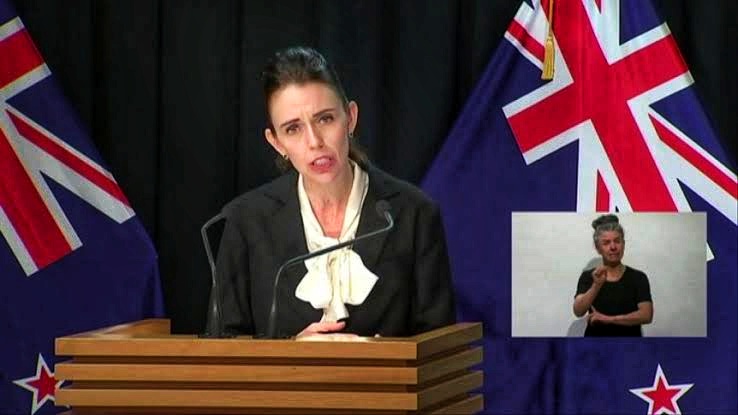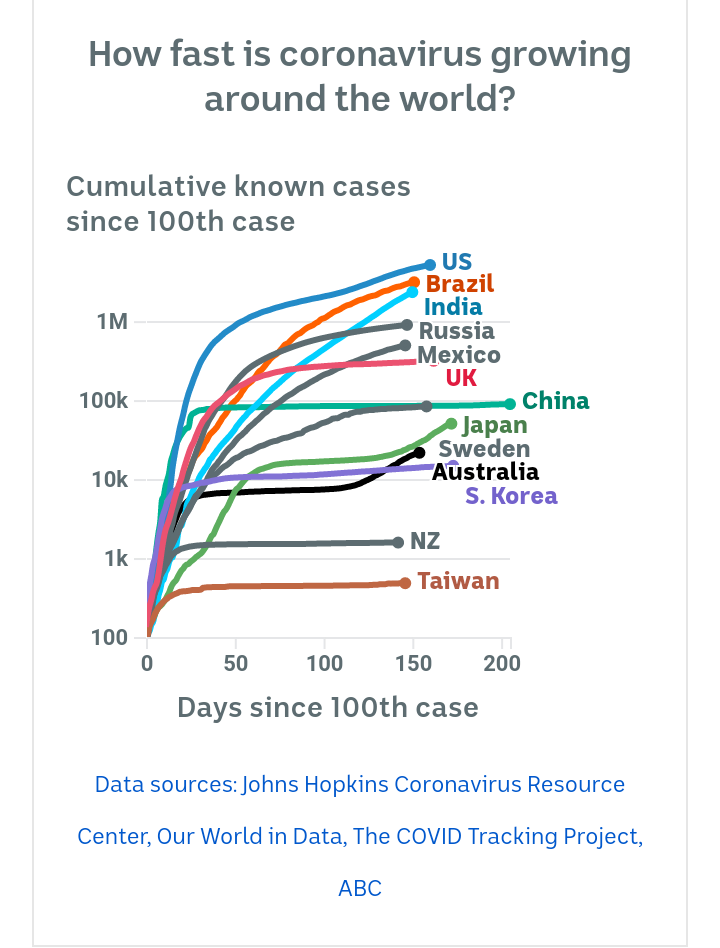New Zealand records 14 new cases of coronavirus
 |
| There are now 36 active cases in New Zealand, which had gone more than 100 days without any new infections until this week |
New Zealand has recorded 14 new cases of coronavirus, all but one linked to four members of an Auckland family who tested positive this week.
There are now 36 active cases in New Zealand, which had gone more than 100 days without any new infections until this week.
Among the new cases are three workers from Auckland refrigerated warehouses run by US-based company Americold.
One of the warehouses is located in the suburb of Mount Wellington, and the other is at the city's airport.
Another seven family members of the first four cases have also been infected.
Among them is a student at Mt Albert Grammar School.
New Zealand's Director-General of Health Ashley Bloomfield said the child was not symptomatic while they were at school, and not returned to school since being tested.
Another case is an employee who worked at the Dominion Road branch of loans broker Finance Now in central Auckland.
Two of their close contacts also tested positive.
Another new case a returned traveller from the Philippines.
Richard Winnall, Americold's Australia and New Zealand managing director, said the company's positive cases worked alongside a man in his 50s who had already tested positive to the virus.
He also told the ABC there had been two positive cases of COVID-19 at Americold's Melbourne plant in Laverton North in recent weeks.
However, he was adamant there could be no link between cases at the two facilities, as the Melbourne warehouse does not ship freight to the company's Auckland plant.
He said the Auckland facilities received imported goods from 15 countries, including Australia, China and the United States.
Dr Bloomfield said surface swabs were being done today at the workplaces, but Prime Minister Jacinda Ardern said the most likely cause of transmission was person-to-person.
Auckland is currently in stage 3 lockdown after the first cases of community transmission in the country in more than 100 days.
On Wednesday, authorities confirmed a woman in her 50s, who had travelled from Islamabad to New Zealand via Dubai, had also tested positive.
She arrived in the country on August 7 and was in managed isolation at the Novotel Ellerslie in Auckland.
The woman tested positive around day three of her stay and has now been transferred to the Auckland quarantine facility.
There is no-one in New Zealand receiving hospital-level care for COVID-19.
Dr Bloomfield said as part of overall national response, "all confirmed cases are to be managed in a quarantine facility".
This is different to how cases were managed at previous levels, and it shows how serious we are, he said.
We will dig deeply to see what exactly is going on. It seems very clear the location of the outbreak was the facility.
All of the new confirmed cases came from testing, and I found out about them first thing this morning. Case investigations are happening this morning. Even if we don't provide more detailed information until 1:00pm tomorrow, any pertinent information around the travel history of those people, if we think it's important, we'll let people know.
Dr Bloomfield said a positive test on Wednesday in Wellington was a false positive.
Whether the initial 72-hour lockdown in Auckland will be extended after Friday is still uncertain.
Ms Ardern said she would not make a decision until she had more details on the spread and infection rate in the community.
She said she expected the coronavirus cluster in the country to grow further before slowing down.
As we all learnt from our first experience with COVID, once you identify a cluster, it grows before it slows. We should expect that to be the case here, Ms Ardern said.
The last time we did this we made sure we had the latest information available to us before we made the decisions.
We want to make a decision based on whether we have cases in a cluster or whether we can see cases not linked to a cluster.
We'll have a wide range of testing from the community before we make that decision.

